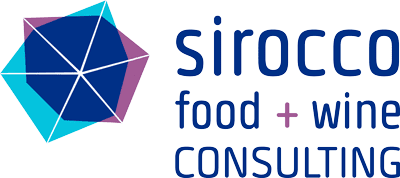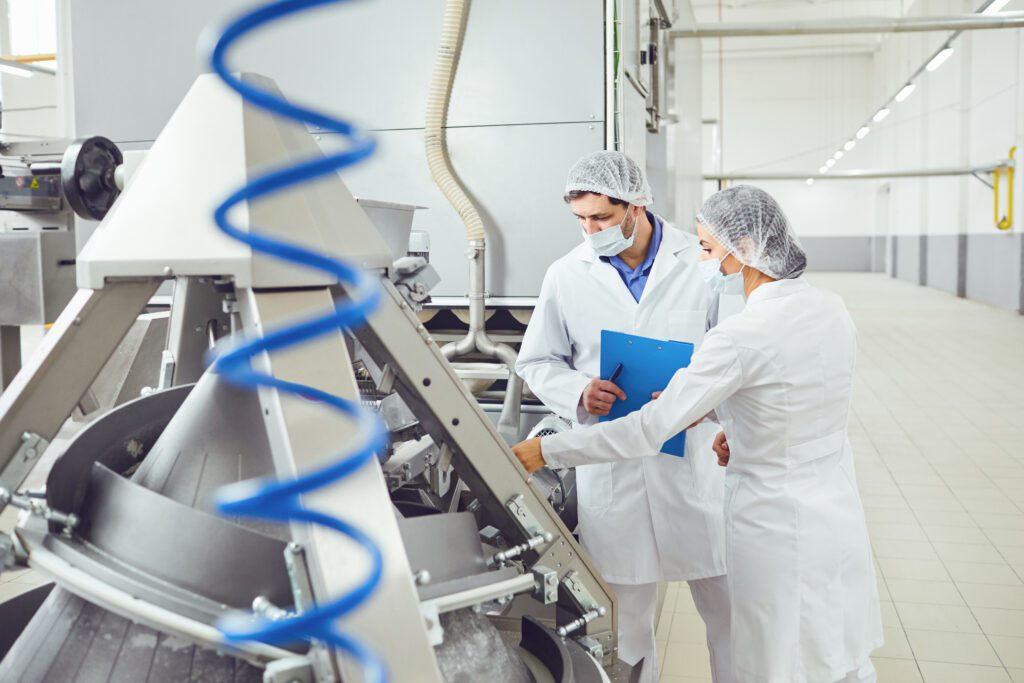What is FSVP, the Foreign Supplier Verification Program? What is the difference between FSMA and FSVP?
The Foreign Supplier Verification Programs (FSVP) for Importers of Food for Humans and Animals is one of the major rules of the Food Safety Modernization Act. The FSVP rule became final on January 26, 2016. For reference, the Food Safety Modernization Act (“FSMA”) was signed into law by President Barack Obama on January 4, 2011. FSMA gave the US Food and Drug Administration (FDA) new enforcement authority to regulate the way foods consumed in the U.S. are grown, harvested and processed. FSMA also grants more enforcement power to FDA, such as the mandatory authority to recall foods.
Like the Preventive Controls for Human Food and Produce Rules, the FSVP rule requires US importers to perform risk-based foreign supplier verification activities to verify that:
The food they import is produced in a manner that provides the same level of public health protection as would be expected domestically under the PCHF rule (hazard analysis and risk-based preventive controls for human food) and/or the Produce rule (safe production and harvesting of certain fruits and vegetables known as Raw Agricultural Commodities or “RAC”).
The imported foods are not adulterated and not mislabeled or misrepresented (specifically, food allergen labeling, and label claims must be accurate).
The FSVP rule mandates that a competent “qualified individual” or “QI” perform supplier screening activities prior to importing foods. A “QI” must review food safety documents and product risk assessments to qualify a foreign supplier. If foreign documents are provided in a language other than English, the “QI” must be fluent in the foreign supplier language to determine whether foods are safe to import.
Under the FSVP rule, the FSVP importer is the entity or individual who has financial stake over the imported foods. It may be the owner of the food or the consignee of food at the time of entry into the U.S. It can also be the U.S. agent or representative of the foreign supplier as outlined in a signed statement of consent.
 What foods are covered under FSVP?
What foods are covered under FSVP?
FSVP is a FSMA rule. Imported foods must comply with Preventive Controls for human food or the Produce Rule.
The FDA regulates the following foods under FSVP:
Bakery, Beverage, Chocolate and Candy, Dairy, Dressings and Condiments, Egg, Food Additives, Fruits and Vegetables, Game Meat, Grains, Multi-Component Foods (such as a refrigerated entrée or a sandwich), Nuts and Oils. See the FDA Hazard Guide regarding risks associated with these food commodities (Guidance was published on January 30, 2024). The FSVP rule also includes imports of Raw Agricultural Commodities (RACs) described under the Produce Rule.
What are the rules for Foreign Supplier Verification Program? What are FSVP importers responsible for?
Under FSVP, US importers must develop, maintain, and follow an FSVP plan for foods they bring into the United States that is destined for human consumption. The written plan includes:
1. A hazard analysis to identify known or reasonably foreseeable biological, chemical, radiological, food fraud-related and physical hazards,
2. The evaluation and approval of each foreign supplier,
3. The determination of supplier verification activities, including frequency, based on food safety risks.
4. Corrective actions based on non-conformities such as the determination that food is unsafe.
5. Reevaluation of the FSVP plan every 3 years or when food safety problem or changes occur which dictate a revision of the risk assessment (See step 1).
6. Identification of the FSVP importer at entry. The final FSVP rule requires that an importer provide its name, electronic mail address, and unique facility identifier (UFI) for each line entry of food product offered for importation into the United States. FDA recognizes DUNS numbers as acceptable UFIs.
7. Documentation of the FSVP plan and records to support food safety. Adequate records must be made available to the US FDA upon request and must be submitted in English.
What is a foreign supplier?
Under FSVP and “for an article of food”, the foreign supplier is defined by the FDA as “the establishment that manufactures/processes the food, raises the animal, or grows the food that is exported to the United States without further manufacturing/processing by another establishment, except for further manufacturing/processing that consists solely of the addition of labeling or any similar activity of a de minimis (understand “insignificant”) nature.”
Foreign food manufacturers that are FDA-registered and maintain food safety documentation to comply with FSMA requirements can lookup their compliance record on the FDA Data dashboard.
How do you develop an FSVP Plan? Can I include the risk assessment for imported foods in my Preventive control plan for Human Food?
In order to develop an FSVP plan, a “QI” must be familiar with performing risk assessments under the PCHF or Produce rule. If required, the FSVP importer may enlist the help of an outside “QI” or “PCQI” to perform the risk assessment and identify supplier verification procedures and controls. When hiring a FSVP specialist, the foreign supplier must review and sign the FSVP program (risk assessment and supplier screening, qualification and verification controls).
US food importers who also manufacture food can combine their Preventive Control Plan for Human Food with their FSVP Program. The supply chain requirements under the PCHF rule are identical to that of FSVP. If importing food, US manufacturers must also comply with the U.S. Customs and Border Protection CBP requirements (prior entry process, DUNS number).
There are exemptions that apply to foods imported into the U.S. Some examples include:
• Fish and Fishery Products or certain ingredients for use in fish and fishery products
• Juice or certain ingredients for use in juice products
• Food for research or evaluation
• Certain alcoholic beverages, or certain ingredients for use in alcoholic beverages
• Certain meat, poultry, and egg products regulated by USDA
• Food imported for personal consumption
• Food that is transshipped
• Food that is imported for processing and export
• U.S. food that is exported and returned without further manufacturing/processing in a foreign country
Does Foreign Supplier Verification Program apply to food contact packaging?
The U.S. Food and Drug Administration (FDA) announced January 4, 2018, that it did not intent to require importers of food-contact substances to comply with the requirements of the Foreign Supplier Verification Program (FSVP). See 2018 FSVP Guidance. Hazards associated with food packaging (considered “food-contact substances” under US law) are already regulated through the food additive petition and food-contact substance notification processes.
As an FSVP importer, do I need an Foreign Supplier Verification Program agent?
You may need a FSVP agent if you are unable to document food safety requirements for imported foods under FSVP. The FSVP “importer” definition under the law is different from the definition of “importer of record” under U.S. Customs and Border Protection (CBP) rules. The prior notice is required by CBP and can be filed either by the importer, exporter or a third-party submitter through the FDA food import system.
A key difference between the Foreign Supplier Verification Program “importer” and FSVP “Agent” is that the FSVP importer must be located in the U.S. The FSVP importer can be the importer of the record for the purpose of the prior-entry CBP process. FSVP importers can act as Foreign Supplier Verification Program agents to ensure that the imported product complies with U.S. food safety laws. FSVP agents are generally in contact with the foreign food suppliers to ensure compliance with the PCHF and Produce Rule. In addition, foreign exporters can enlist the services of FSVP agents in the country of origin of the food to ensure compliance with FSVP regulations. In addition, a US agent such as a customs broker may facilitate the customs clearance of food imported into the U.S. In some instances, US agents may also act as FSVP agents if they provide FSVP compliance services.
How much is the fee for FSVP?
Costs associated with developing a FSVP plan is dependant upon the import scope, number of food product categories being imported and the food safety risks associated with them. Some products under the FSVP regulations have complex requirements, such as thermally processed low acid canned foods (21 CFR Part 113) necessitating a more thorough risk evaluation and verification activities. Contact a FSVP regulatory specialist to seek guidance.
 What to expect during an FDA inspection?
What to expect during an FDA inspection?
Generally, FDA does not give advanced notice re: Foreign Supplier Verification Program inspections. Importers will receive from the regulatory agency a Formal “Request for FSVP Records” (Form FDA 482d). FDA will review the different types of documentation that relate to the importer’s FSVP program. The FDA inspectors will review the implementation of the risk assessment and supplier verification procedures as outlined in the written FSVP plan. FDA will request copies of some of the FSVP records. Once the inspection is completed, FDA will provide “FSVP Observations” (Form FDA483a) that describe any deficiencies in relation to FSVP compliance.
Are you a US Food Importer who requires the services of a FSVP Agent? Do you need assistance with the development and implementation of a Foreign Supplier Verification Program (FSVP) to export to the USA? Under FSMA, US importers must ensure that imported foods meet the same food safety standards that are required of food produced in the U.S. Allow Sirocco’s PCQI experts to help you set up your FSVP program and save money on administration time and chasing suppliers for information. Drop us a line to schedule a free consultation.


 What foods are covered under FSVP?
What foods are covered under FSVP? What to expect during an FDA inspection?
What to expect during an FDA inspection?


